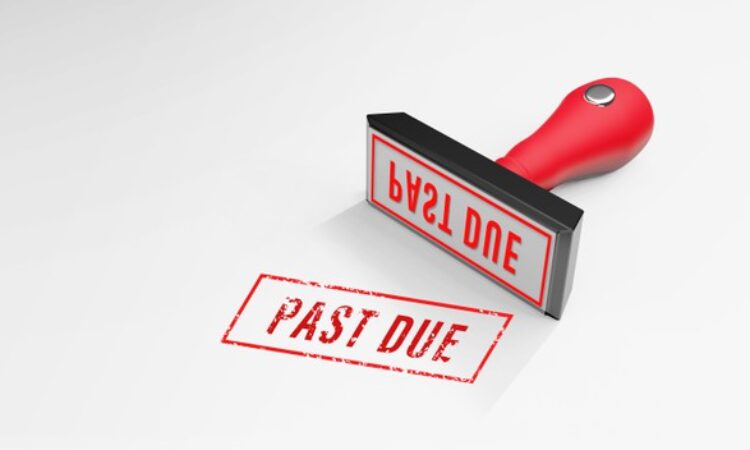
Property Disputes
Facing Property Disputes? Let Hopkins Solicitors Guide You to a Solution.
Don’t Navigate These Complex Issues Alone—Your Property Rights and Peace of Mind are Our Priority.
Property disputes can be stressful and disruptive, affecting not only your financial stability but also your emotional wellbeing. At Hopkins Solicitors, we understand the profound impact these conflicts can have on your life and are committed to providing the strong, dedicated advocacy you need during this challenging time.
Why Trust Hopkins Solicitors with Your Property Dispute?
- Specialised Expertise: Our team is highly experienced in handling all types of property disputes, from boundary issues to co-owner disagreements and adverse possession claims.
- Client-Focused Service: We provide personalised attention and tailor our legal strategies to meet your specific needs and concerns, ensuring you receive the best possible outcome.
- No Win, No Fee: Concerned about legal costs? Our policy ensures you pay nothing unless we win your case, allowing you to focus on resolving the dispute without financial worry.
Ready to Resolve Your Property Dispute?
Navigating property disputes can be complex and daunting, but you don’t have to do it alone. We are here to provide clear, supportive guidance every step of the way, ensuring you feel informed and confident throughout the process.
Understanding Property Disputes
Property disputes cover many conflicts. They arise from ownership, boundaries, or tenancy issues. These include boundary fights between neighbours, disputes over co-ownership, and real estate fraud. These disputes can have significant emotional and financial implications for all parties involved. Emotionally, they can lead to stress, anxiety, and strained relationships. Particularly when dealing with issues close to home. Property disputes can be costly. They can lead to legal proceedings, damage, or loss. They may also disrupt personal or business plans, causing uncertainty and instability.
At Hopkins Solicitors, we know that property disputes take a toll. They harm individuals and families. Our empathetic approach aims to reduce stress and provide clarity amidst uncertainty. We aim to empower our clients. We give them the knowledge and support needed to navigate property disputes well. This minimises both emotional and financial burdens. We use our expertise and dedication to work for fast outcomes. We ensure our clients’ peace of mind and protect their property interests.
Types of Property Disputes
Property disputes come in various forms, each presenting its unique challenges and complexities. For example, boundary disputes happen when neighbours disagree on their property lines. In one case, two homeowners may dispute a fence’s placement. This can lead to conflicts over property lines and possible encroachments.
Co-owner disputes occur when individuals jointly own a property but disagree on its management or use. For example, siblings can inherit a family home. They may disagree on whether to sell it or keep living in it. This may lead to legal battles over ownership and decision-making.
Specific performance issues arise when one party fails to meet their duties under a property contract. This can happen when they refuse to complete a sale or transfer ownership as agreed. For instance, a seller may accept an offer. Then, they may back out of a property sale agreement. This leads to disputes over breach of contract and financial harm.
Legal challenges, like adverse possession, involve claims to property ownership. They are based on continuous and open use of land over a specified period. In the real world, a neighbour may claim part of a property’s land through adverse possession. This can lead to disputes over property rights and legal ownership.
At Hopkins Solicitors, we understand the challenges associated with various types of property disputes. Our team has extensive experience in handling boundary disputes, co-owner disputes, specific performance issues, and legal challenges like adverse possession. With our expertise and dedication, we work tirelessly to resolve property disputes. We ensure our client’s rights and interests are protected throughout the process.
Steps to Resolve Property Disputes
Resolving property disputes can be complicated. By using a systematic approach, it can be navigated effectively. It starts with an initial assessment of the dispute’s nature and extent. Then, you gather relevant documents such as deeds and contracts. Seeking legal advice from experienced solicitors specialising in property law, like Hopkins Solicitors, is crucial at this stage.
Consider mediation as a first step. This process is to assist in discussions between parties to achieve a mutually agreeable outcome. If mediation fails, the parties can pursue direct negotiations. They will explore compromises that address both parties’ interests. Going to court is a last resort and your solicitor will guide you through the process. They will help you with filing claims, making arguments, and responding to counterclaims. Once a resolution is reached, it should be documented in a legally binding agreement. Throughout the process, keeping open communication and considering other solutions can boost the chance of success.
Request a Callback Conveyancing Fees Quotes
Legal Solutions and Hopkins Solicitors’ Approach
Legal frameworks offer diverse solutions for property disputes. Hopkins Solicitors adeptly uses negotiation, mediation, and litigation to resolve disputes well. Negotiation serves as an initial approach. It encourages constructive dialogue between parties to achieve a mutually beneficial agreement. Mediation facilitates amicable resolutions through impartial facilitators, fostering communication and understanding. In cases requiring legal action, litigation support ensures robust representation in court proceedings. Hopkins Solicitors navigates these rules with skill. They work to protect clients’ interests and to promote fair resolutions.
At Hopkins Solicitors, we resolve boundary and co-owner disputes. We also handle complex legal challenges, like adverse possession. We use tailored strategies for each case’s unique circumstances. Our team guides clients through the legal process through clear communication and diligent advocacy. We empower clients to make informed decisions and achieve good outcomes. Hopkins Solicitors is committed to professionalism, empathy, and support, we stand by clients and offer full solutions to navigate property disputes well.
Why Choose Hopkins Solicitors?
Choosing Hopkins Solicitors for property dispute resolution offers numerous advantages. With a deep understanding of property law, our team provides comprehensive legal expertise tailored to each client’s unique situation. We prioritise personal client service. We ensure that each person gets attentive support and guidance. Our record in resolving disputes speaks volumes. It shows our commitment to getting the best outcomes for our clients.
We aim to efficiently and effectively resolve disputes. This is by utilising negotiation skills, mediation services, and litigation support. Clients can trust in our professionalism, approachability, and dedication to their success. We focus on clear communication, empathy, and support. We help clients make confident decisions in property disputes. Our firm provides expert guidance on boundary disagreements, co-owner conflicts, and complex legal challenges. With Hopkins Solicitors by their side, clients can feel assured. We protect their interests and uphold their rights during disputes.
Conclusion
At Hopkins Solicitors, we understand the stress and uncertainty that property disputes can bring. Our dedicated team is here to provide you with comprehensive legal support, from initial assessment to resolution. With our expertise in property law and proven track record in dispute resolution, you can trust us to guide you through every step of the process. We prioritise clear communication, and value empathy and support. This ensures that you feel empowered to make informed choices. You could be facing a boundary dispute or co-owner disagreement. Or, another property issue. We’re committed to finding a solution that meets your needs and protects your interests. Contact us today to discuss how we can help you navigate property disputes with confidence.
FAQs
What are the most common types of property disputes?
Common property disputes include boundary disagreements, co-owner disputes, landlord-tenant conflicts, and issues related to property rights and title.
How can I prevent property disputes from occurring
Clear communication, proper documentation, and proactive measures such as boundary surveys and title searches can help prevent property disputes.
What steps should I take if I find myself in a property dispute?
It’s essential to seek legal advice promptly. Document the details of the dispute and gather any relevant evidence, such as contracts, deeds, and correspondence.
Is mediation an option for resolving property disputes?
Yes, mediation can be an effective alternative to litigation. It allows parties to work together with a neutral third party to find a mutually acceptable resolution.
How can Hopkins Solicitors help me with my property dispute?
Our experienced team specialises in property law and dispute resolution. We provide personalised legal advice, negotiation assistance, and representation in mediation or litigation to help you resolve your property dispute efficiently and effectively.
Request a Callback
"*" indicates required fields
Meet the Team
Testimonials
-
Had a good experience with Hopkins Solicitors. My solicitor was always there with updates and if he wasn’t available his secretary was. Very polite people to talk too. The costs were very reasonable, on the whole I would recommend Hopkins solicitors to everybody including family and friends
Michael Brown, 31st August 2022
-
My expectations were far exceeded when dealing with Ross and his team recently. The service I received was of the highest standard. I was treated with respect, courtesy and professionalism at a very difficult time. Thank you Ross, you are a credit to Hopkins.
Bryan Willson, 31st August 2022




